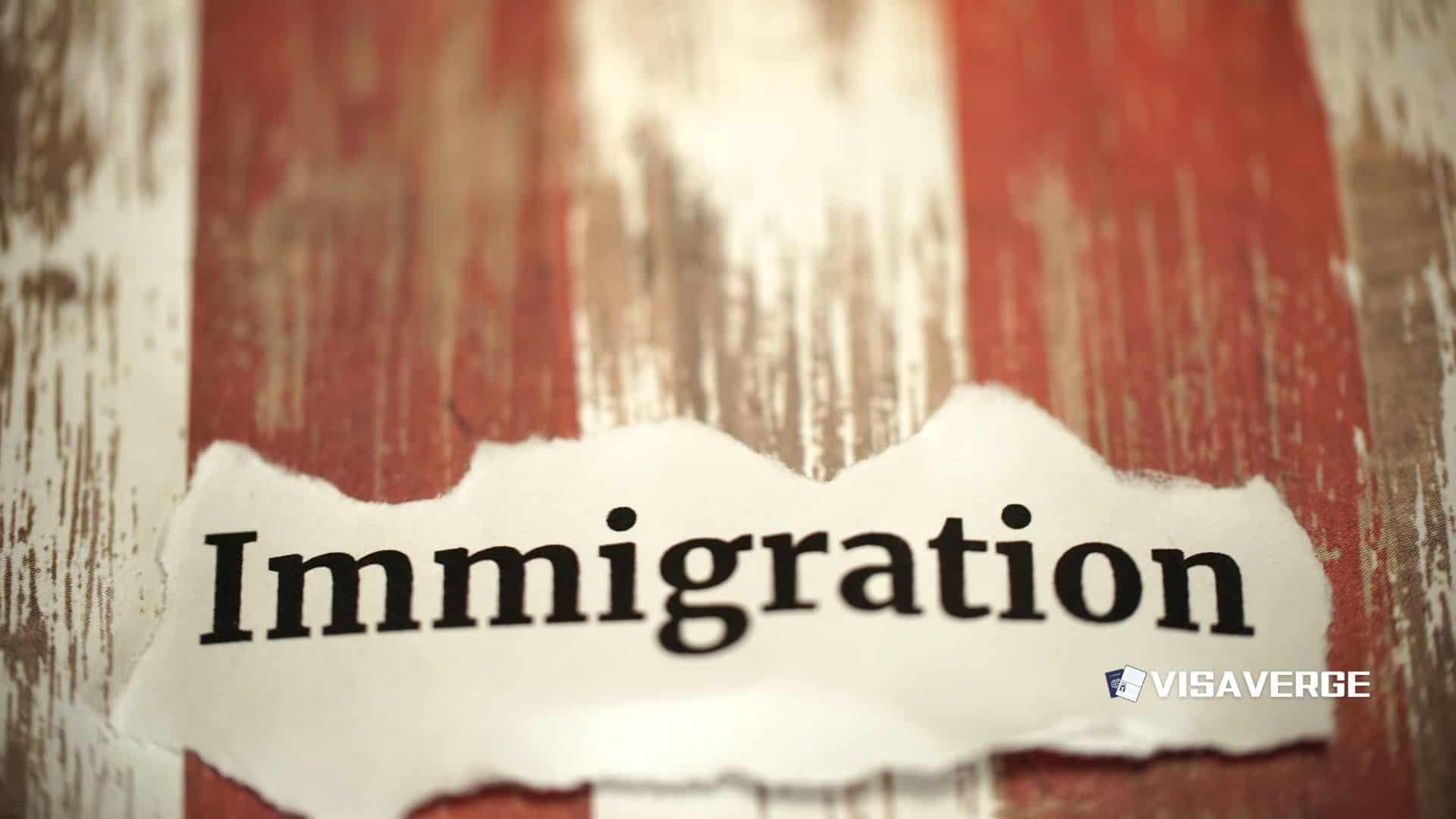Key Takeaways
• Kuwait revoked citizenship from 37,000+ people since August 2024, mainly women naturalized by marriage since 1987.
• Legal changes include abolishing Article 8, targeting dual nationals and alleged fraudsters to reshape citizenship policy.
• Affected individuals face statelessness, frozen accounts, and social rights loss, with limited international response.
Kuwait’s sweeping campaign to revoke citizenship from tens of thousands of people, including a large number of women, marks a turning point in the country’s approach to national identity and immigration policy. This analysis examines the purpose and scope of the campaign, the methods used to implement it, the key findings and data, and the broader implications for affected individuals and Kuwaiti society. The content draws on official statements, expert analysis, and reported statistics to provide a clear, unbiased overview of this unprecedented development.
Purpose and Scope

The main purpose of Kuwait’s citizenship revocation campaign is to reshape the country’s national identity and address what the government describes as “impurities” in the citizenship register. The campaign, which began in August 2024, targets several groups:
- Women who obtained citizenship through marriage (especially since 1987)
- Dual nationals (Kuwait does not recognize dual citizenship)
- Individuals accused of obtaining citizenship fraudulently
- Those naturalized under the “exceptional services” clause
The scope of the campaign is vast, with at least 37,000 people affected as of May 2025. The government has justified these actions as part of a reformist agenda to “deliver Kuwait to its original people,” according to Emir Sheikh Meshal al-Ahmad Al-Sabah.
Methodology
This analysis is based on a review of official government statements, court decisions, expert commentary, and statistical data reported by local and international media. The methodology includes:
- Data collection from official government releases and news reports
- Review of legal changes to Kuwait’s nationality law
- Analysis of public and expert responses
- Examination of the impact on affected groups, especially women
Visual descriptions are used to help readers understand the scale and trends of the campaign, and comparisons are made to historical and regional contexts.
Key Findings
1. Unprecedented Scale:
Kuwait’s citizenship revocation campaign is the largest in its history, with at least 37,000 people stripped of nationality in less than a year. The majority—at least 26,000—are women who became citizens through marriage.
2. Targeted Groups:
The campaign focuses on women, dual nationals, and those accused of fraud. High-profile figures, including pop singer Nawal The Kuwaiti and actor Dawood Hussain, have also lost their citizenship.
3. Legal and Policy Changes:
The government abolished Article 8 of the nationality law, which previously allowed certain pathways to citizenship. The cut-off year for revocations under this article is 1987.
4. Severe Consequences:
Affected individuals face frozen bank accounts, loss of pensions, and statelessness. Women are especially vulnerable, with many losing not only their nationality but also their legal and financial security.
5. Shifting Public Sentiment:
While the campaign was initially popular, public opinion has shifted as the human cost becomes clearer.
6. Limited International Response:
Despite the scale of the campaign, international reaction has been muted.
Data Presentation and Visual Descriptions
To help readers grasp the scale and progression of Kuwait’s citizenship revocation campaign, the following visual descriptions and data points are provided:
Timeline of Revocations
- August–December 2024: Over 12,000 citizenships revoked
- January 2025: 3,856 individuals lost citizenship
- February 2025: Over 9,400 more stripped of nationality
- March 2025: Total reached approximately 42,000
- May 2025: At least 37,000 confirmed cases, including 26,000 women
Imagine a line graph with a steep upward curve starting in August 2024, peaking in March 2025, and stabilizing at around 37,000 by May 2025. The largest spike occurs in early 2025, reflecting the campaign’s rapid escalation.
Gender Breakdown
A pie chart would show that about 70% of those affected are women, with the remaining 30% being men or individuals from other targeted groups.
Legal Pathways Targeted
A bar chart could illustrate the breakdown of revocations by legal category:
- Women naturalized by marriage: 26,000+
- Dual nationals: Number not specified, but a significant portion
- Fraudulent cases: Several thousand
- Exceptional services clause: Hundreds to thousands
Financial and Legal Impact
A table could summarize the main consequences:
| Impact Area | Description |
|---|---|
| Bank accounts | Frozen, no access to funds |
| Pensions | Suspended or stopped |
| Legal status | Stateless, loss of political rights |
| Property ownership | No longer allowed |
| Employment | Promised protection for some women, but inconsistently applied |
Comparisons, Trends, and Patterns
Historical Context
Kuwait has a long-standing issue with statelessness, most notably among the Bidoon community, estimated at 100,000 people. The current campaign adds tens of thousands more to this group, raising concerns about the country’s approach to citizenship and inclusion.
Regional Comparison
While other Gulf countries have strict citizenship laws, Kuwait’s campaign stands out for its scale and speed. Most countries in the region do not recognize dual citizenship and have tough requirements for naturalization, but mass revocations on this scale are rare.
Policy Trends
The campaign reflects a broader trend in the region toward tightening citizenship laws and restricting access to social benefits. Kuwait’s move to require a 15-year residency for foreign wives of Kuwaiti citizens (up from five years) is part of this trend.
Public Sentiment
Initial support for the campaign was based on the belief that it would target fraudsters and protect public resources. However, as more women and families are affected, public concern has grown. Stories like that of Lama, a Jordanian-born grandmother who discovered her citizenship had been revoked when her bank account was frozen, have shifted the conversation.
Evidence-Based Conclusions
1. The campaign is reshaping Kuwaiti society.
By targeting women, dual nationals, and those accused of fraud, the government is narrowing the definition of who belongs in Kuwait. This has immediate consequences for thousands of families and long-term implications for the country’s social fabric.
2. Women are disproportionately affected.
With at least 26,000 women losing citizenship, the campaign raises serious questions about gender equality and the rights of women in Kuwait. Many women who became citizens through marriage now face statelessness and loss of legal protections.
3. The legal framework has changed significantly.
The abolition of Article 8 and the introduction of stricter residency requirements for naturalization signal a move toward a more exclusive citizenship policy.
4. The campaign may be politically motivated.
Experts suggest that reducing the citizen population could make it easier for the government to manage the voter base and reduce political opposition.
5. The human cost is high.
Affected individuals face financial hardship, loss of rights, and uncertainty about their future. Promised protections for women have not always been implemented, leaving many in a vulnerable position.
6. International response has been limited.
Despite the scale of the campaign, there has been little international criticism or intervention.
Limitations
This analysis is based on available data as of May 2025. The true number of affected individuals may be higher, as some cases may not have been reported. The government’s confidential hotline and cooperation with other countries make it difficult to track all revocations. There is also limited information on the long-term outcomes for those who have lost citizenship, especially women and children.
Policy and Legal Framework
The campaign is guided by changes to Kuwait’s nationality law, including the abolition of Article 8 and stricter requirements for naturalization. The Supreme Committee for Nationality Affairs, led by the First Deputy Prime Minister and Interior Minister, oversees the process. The government has encouraged citizens to report suspected cases of dual nationality or fraud through a confidential hotline.
For more information on Kuwait’s nationality law and official procedures, readers can visit the Kuwait Ministry of Interior’s official website.
Impact on Women
Women are at the center of this campaign. Those who obtained citizenship through marriage since 1987 are being reviewed, and many have already lost their nationality. The government has promised to protect their employment and social benefits, but reports suggest that these promises are not always kept. Women who become stateless lose the right to own property, access bank accounts, and participate in political life.
Children of women who lose citizenship face an uncertain future. Some may retain their nationality, but many are at risk of becoming stateless.
Broader Social and Economic Implications
The campaign has significant implications for Kuwaiti society:
- Social cohesion: The removal of thousands of citizens, especially women, may lead to increased social tension and division.
- Economic impact: With 80% of the state budget devoted to public sector salaries and social welfare, the campaign may be an attempt to reduce financial pressure. However, the loss of skilled and contributing members of society could have negative long-term effects.
- Political stability: By reducing the number of citizens, the government may be seeking to consolidate power and limit opposition.
Future Outlook
The Council of Ministers is planning further amendments to the nationality law to close loopholes and protect national identity. The Acting Prime Minister has stated that all citizenship-related materials will be thoroughly reviewed, suggesting that the campaign may continue.
New regulations for non-Kuwaiti spouses, including a 15-year residency requirement, will make it harder for foreign wives to become citizens. The fate of children born to women who lose citizenship remains uncertain.
Practical Guidance for Affected Individuals
Anyone affected by Kuwait’s citizenship revocation campaign should:
- Seek legal advice from qualified professionals familiar with Kuwaiti nationality law
- Monitor official government announcements for updates on policy changes
- Document all communications with government agencies and banks
- Contact the Ministry of Interior for information on appeals or legal remedies
For those at risk of statelessness, it is important to explore options for residency, employment, and access to basic services.
Conclusion
Kuwait’s citizenship revocation campaign represents a major shift in the country’s approach to national identity and immigration. The focus on women, dual nationals, and those accused of fraud has led to the loss of citizenship for tens of thousands, with far-reaching consequences for individuals and society. While the government presents the campaign as a necessary reform, the human cost is significant, and the long-term impact remains uncertain.
As reported by VisaVerge.com, the campaign’s scale and speed are unmatched in the region, and the consequences for women and families are especially severe. The lack of strong international response highlights the challenges faced by those who lose their citizenship.
Affected individuals should stay informed, seek legal support, and document their experiences. The situation in Kuwait 🇰🇼 is evolving, and further changes to nationality law are expected. For the latest official information, consult the Kuwait Ministry of Interior.
Key Takeaways:
– Kuwait’s citizenship revocation campaign is the largest in its history, with a focus on women and dual nationals.
– Legal changes have made it harder to obtain or keep Kuwaiti nationality.
– The consequences for affected individuals are severe, including statelessness and loss of rights.
– Public sentiment is shifting as the human cost becomes clearer.
– Further legal changes are expected, and the campaign may continue to expand.
By understanding the scope, methods, and impact of Kuwait’s citizenship revocation campaign, readers can better assess the risks and prepare for potential changes to their legal status.
Learn Today
Citizenship Revocation → Government action removing citizenship status from individuals for legal or policy reasons.
Dual Nationality → The status of a person legally recognized as a citizen of two countries simultaneously.
Statelessness → The condition where a person lacks citizenship in any country, losing legal protection.
Article 8 → A former provision in Kuwait’s nationality law allowing specific naturalization paths now abolished.
Exceptional Services Clause → A legal provision granting citizenship for extraordinary contributions, targeted in revocation campaigns.
This Article in a Nutshell
Kuwait’s largest citizenship revocation campaign targets mainly women and dual nationals, stripping over 37,000 individuals of nationality and causing severe social and legal consequences amid evolving nationality laws.
— By VisaVerge.com













